Popular Foods for Reducing Inflammation After 50, Says Dietitian
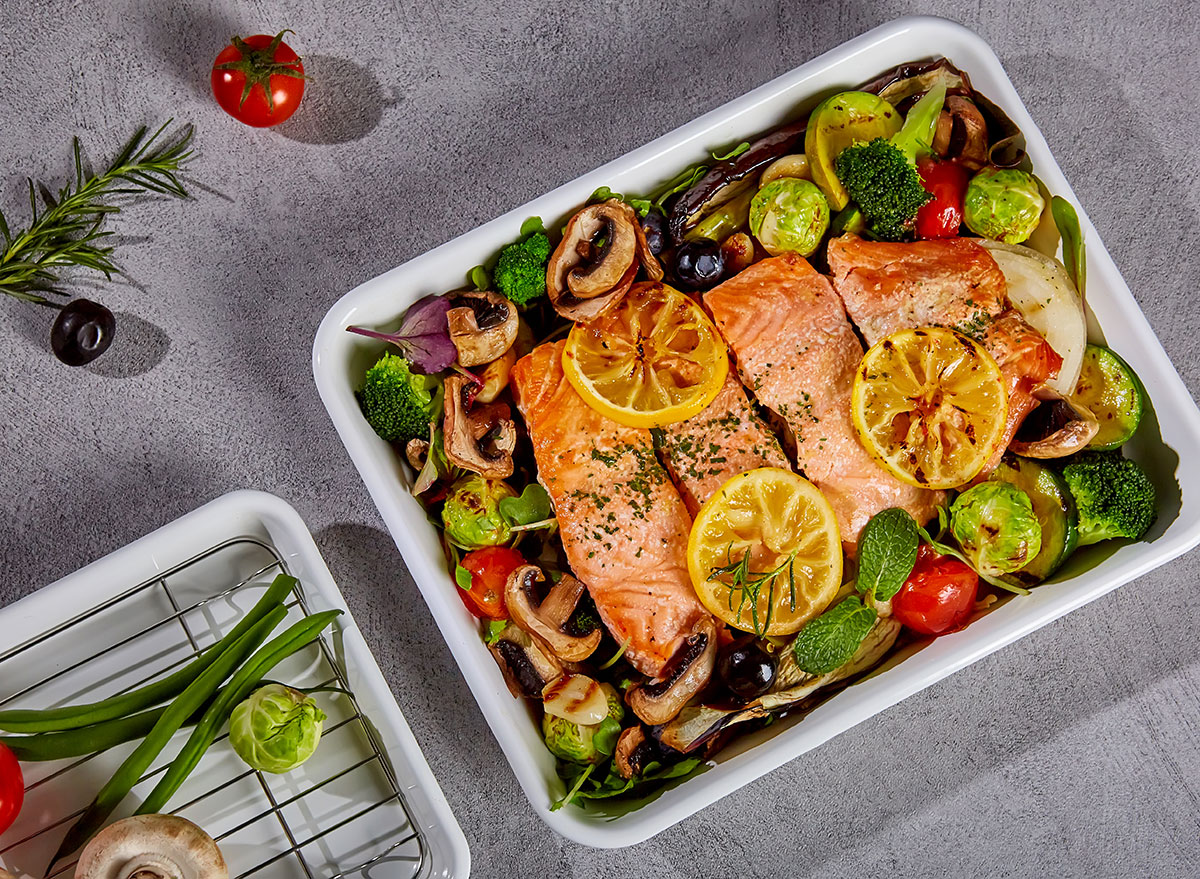
If you've ever been confused by inflammation, don't worry—you're not alone. Understanding inflammation can be a difficult feat because, on one hand, your body needs it to heal from sickness or injury. But on the other hand, inflammation can pop up when it's not supposed to and lead to serious illness or disease.
According to Harvard Health, inflammation can occur if you are exposed to toxins or other common causes like chronic stress, obesity, autoimmune disorders, and more. If not addressed, the inflammation can persist over time and become chronic.
As you age and your body continues to change in multiple ways, it's more important than ever to keep inflammation at bay whenever you can. Along with regular exercise and good quality sleep, your diet is a key component in this process.
To help learn more about foods that can help you manage inflammation, we talked with Courtney D'Angelo, MS, RD, author at GoWellness. Here are the popular foods she says can help reduce inflammation after 50, and for more healthy eating tips, make sure to read The #1 Best Diet After 50, Says Dietitian.
Fatty fish
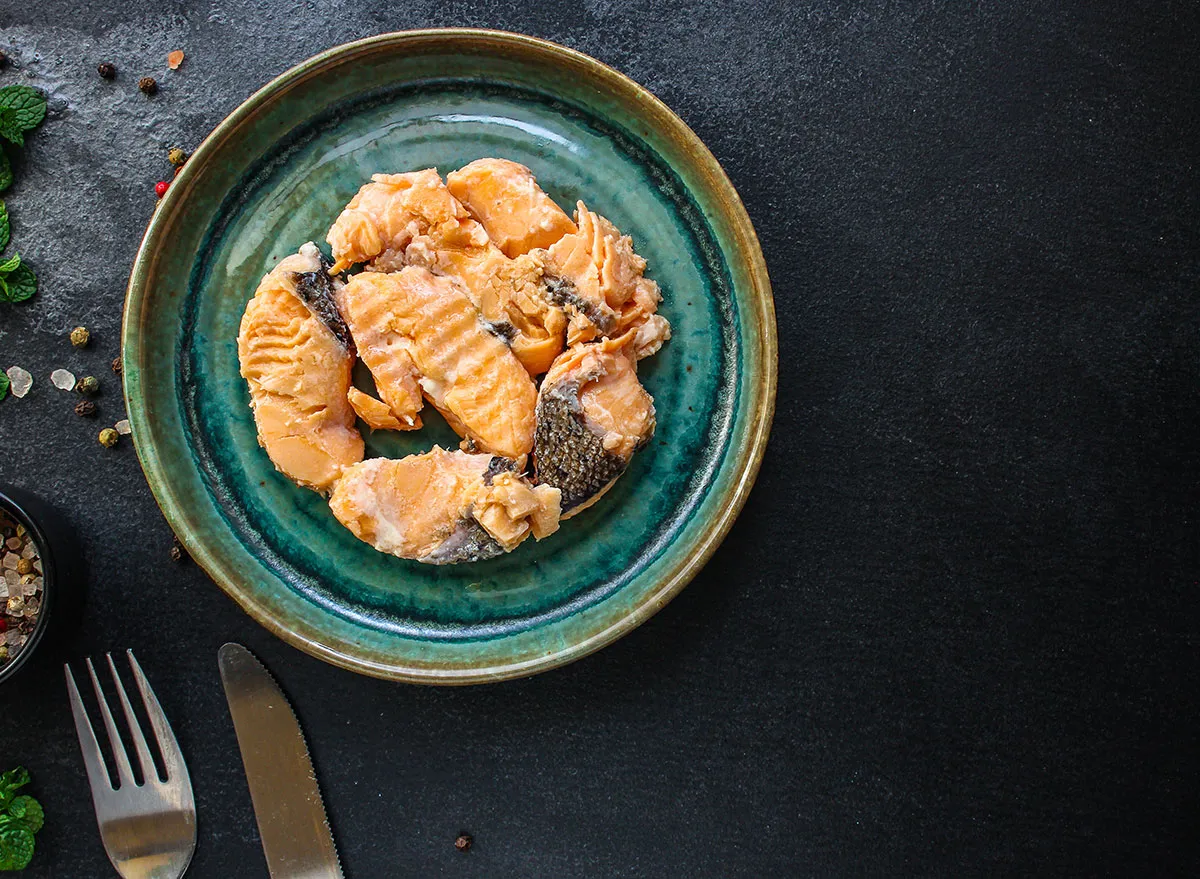
When it comes to reducing inflammation and pursuing a healthy diet, eating fish is one of the best choices to make.
"Fatty fish are very high in omega-3 fatty acids EPA and DHA, which have been researched and shown to reduce inflammation," says D'Angelo. "Fish such as salmon, cod, mackerel, tuna, and herring have some of the highest concentrations."
D'Angelo also mentions that because fried food can increase inflammation, it's important to avoid fried fish when you can and instead find another delicious way of preparing it like grilling or baking.
Nuts
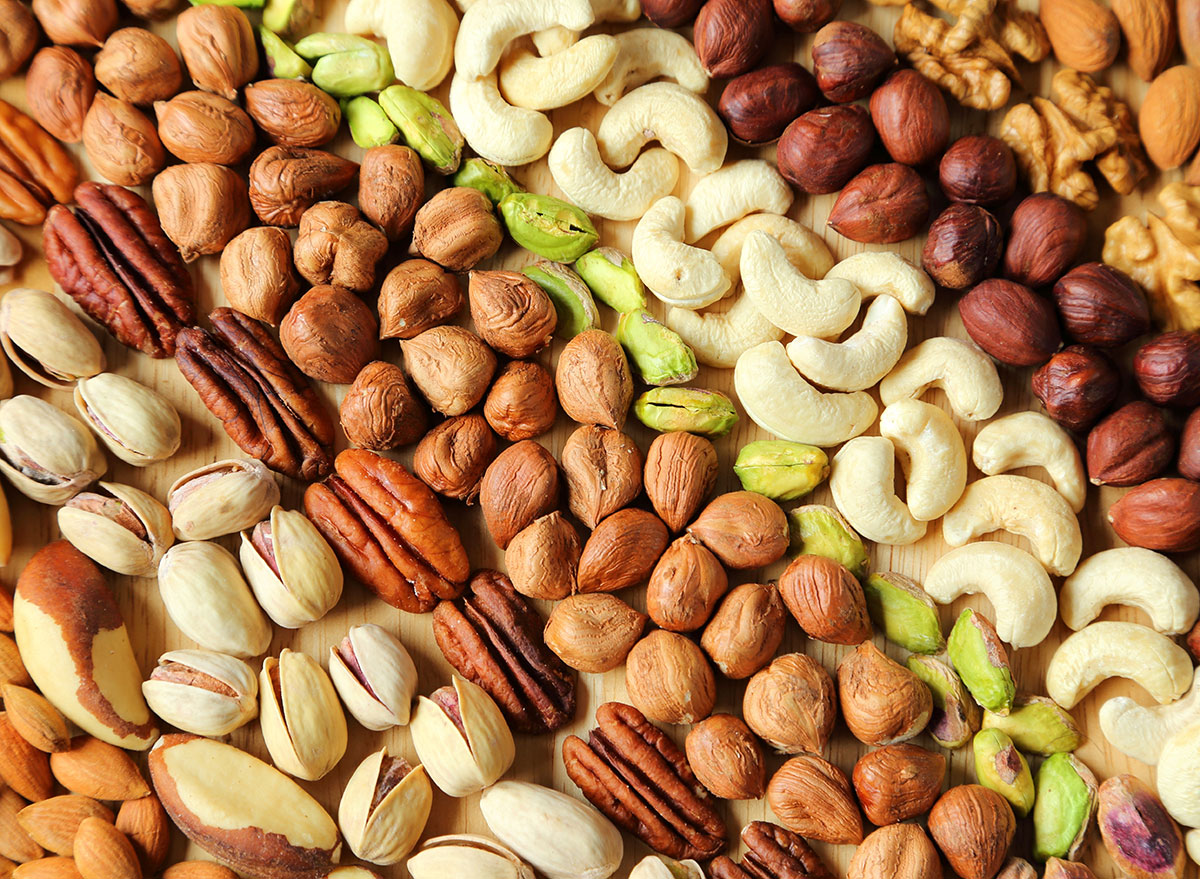
Nuts are full of health benefits and anti-inflammatory properties, which is why they are central to many of the diets consumed by people in the world who live the longest.
"Walnuts and almonds, in particular, are rich in vitamin E and other antioxidants that help reduce inflammation," says D'Angelo. "For example, if your immune system has been overactive, nuts can help repair the damage, thanks to the vitamin E acting as an antioxidant."
Along with almonds, here are The 15 Best Vitamin E-Rich Foods
Green leafy vegetables
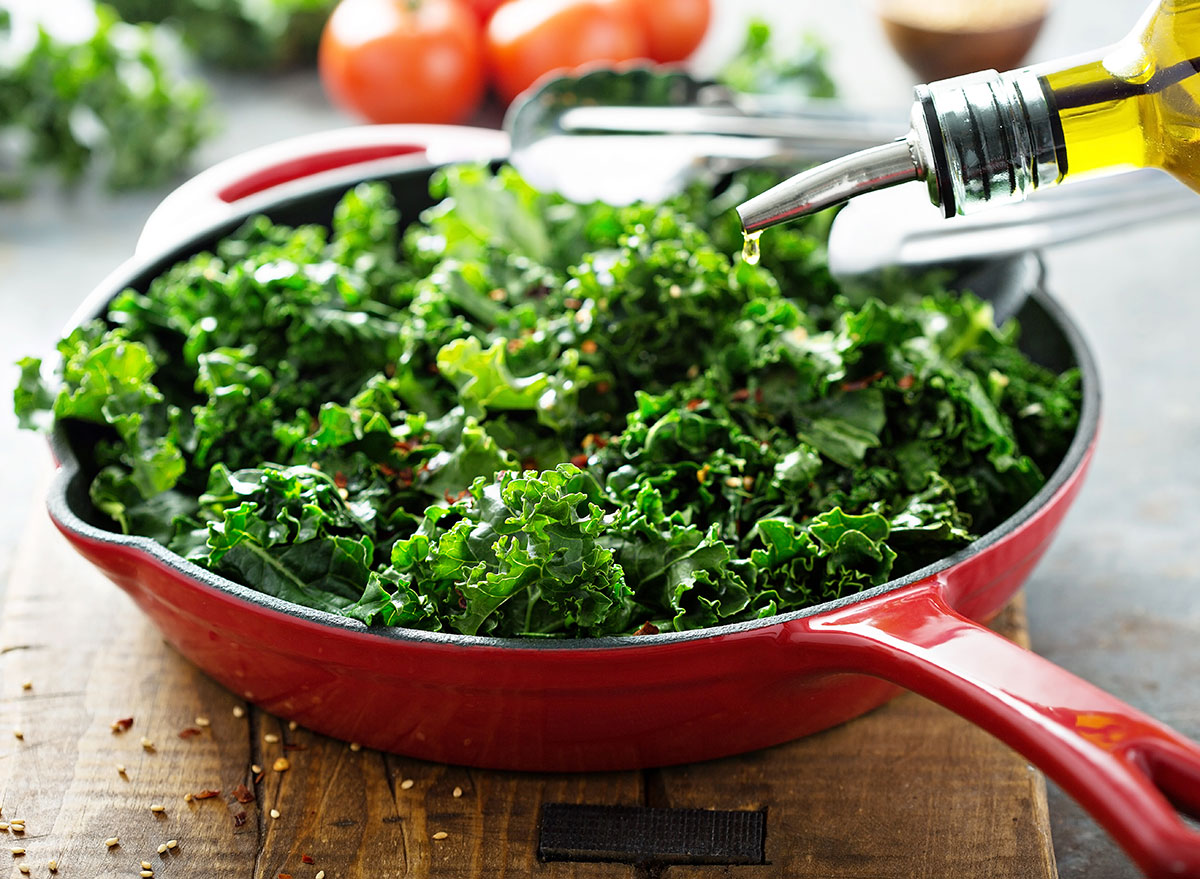
Speaking of vitamin E, D'Angelo says there are certain leafy greens that can also be a great source of this inflammation-reducing nutrient like kale, spinach, and broccoli.
"Along with vitamin E, you're also adding in calcium and vitamins A, C, and K when you consume green leafy vegetables," says D'Angelo. "These vitamins can help play a major role in fighting inflammation and providing other health benefits as well."
Strawberries
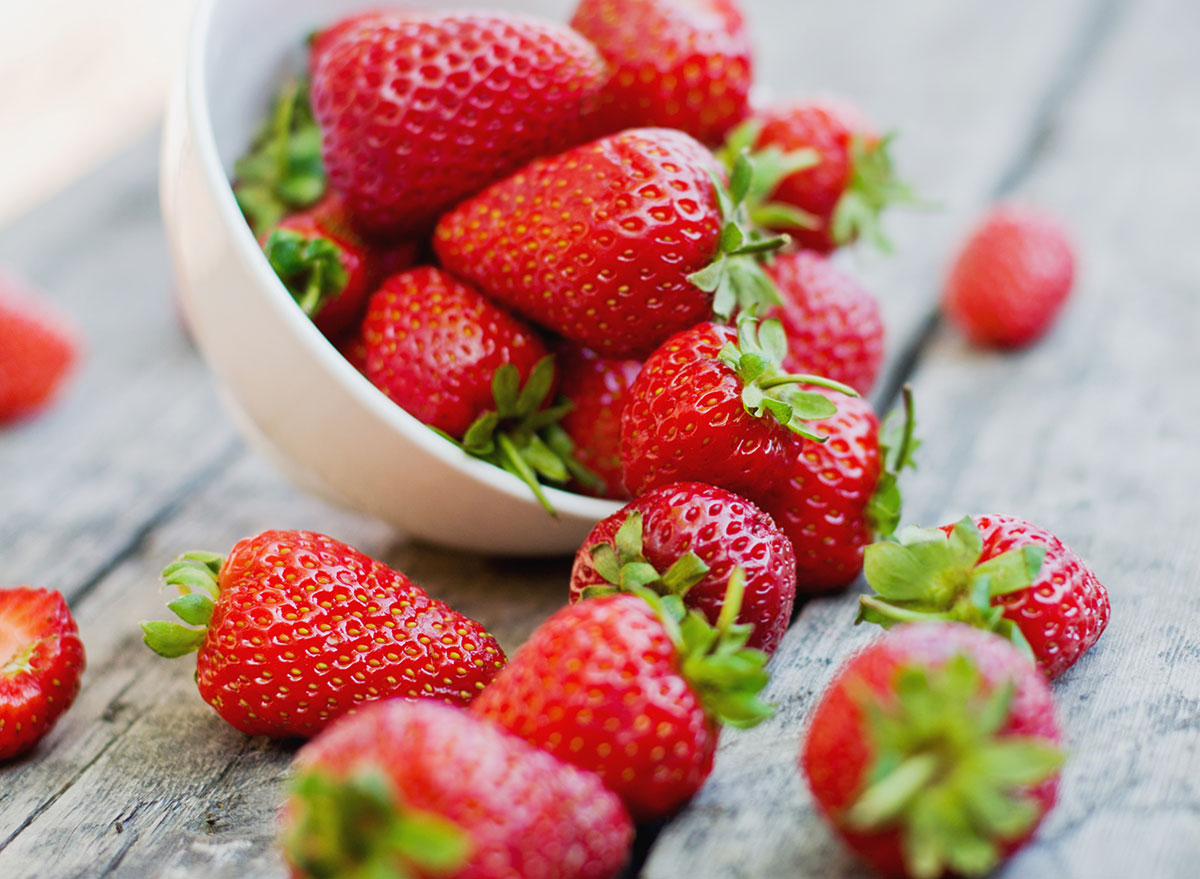
Finally, strawberries are also a great food for helping to reduce inflammation, and according to D'Angelo, it's due to their antioxidant content.
"Strawberries contain antioxidants known as anthocyanins, which do two important things at once- lower the concentration of pro-inflammatory mediators and increase anti-inflammatory molecules," says D'Angelo.
For even more healthy tips, read these next:








